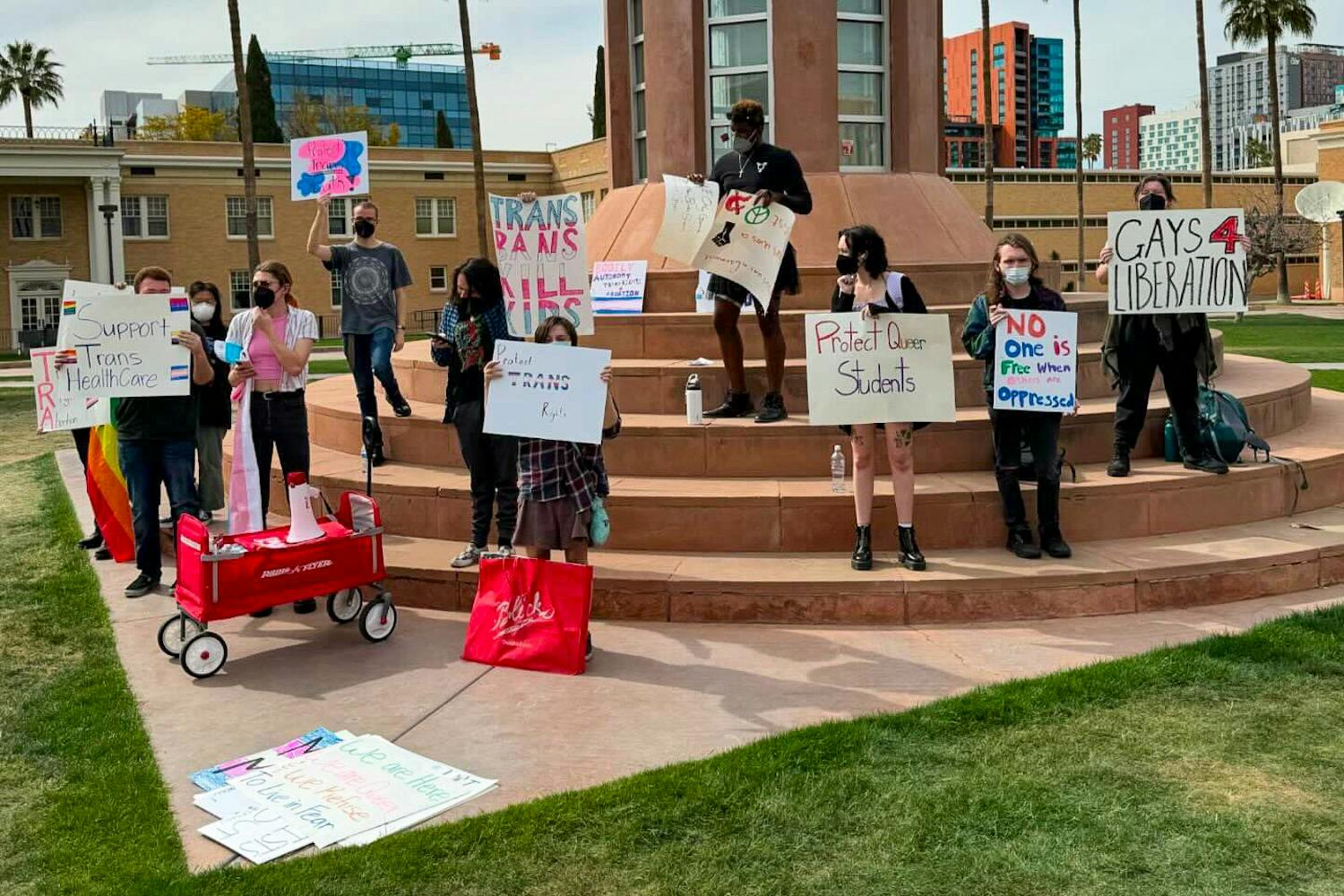Abortion is an issue that in all likelihood will never stop being debated. At the heart of the controversy is the conception of life — something so abstract and elusive that society will never reach a definite consensus.
That doesn’t mean we can’t make progress. The delicacy of the situation doesn’t necessitate the bull-headed discourse we see in our society.
However, boundaries to rational discussion of the definition of life are often built by dogma and an “us vs. them” mentality coming from religion, feminism and politics, all of which cloud the true issue at hand: whether we are systematically killing people or not.
A recent Buzzfeed article covering the secular participants of the recent March for Life in Washington, D.C., reminded just how far this controversy has veered from its true nature. However, the pictures of secular protesters gathered on the cold District of Columbia streets gives hope to rational discussion of the topic.
 The far left often criticizes the opponents of abortion for not being level headed about the debate and accuses the religious right of appealing to God.
The far left often criticizes the opponents of abortion for not being level headed about the debate and accuses the religious right of appealing to God.
Of the many faiths that are opposed to abortion, Latter-day Saints stand out as the more fervent opponents. The First Presidency of the the Church of Jesus Christ of Latter-day Saints iterated its opposition to abortion in the fateful year of 1973 (Roe v. Wade), excluding cases where “the life or good health of the mother is seriously endangered or where the pregnancy was caused by rape and produces serious emotional trauma in the mother” and has remained committed to speaking against in the years since.
The culture of Latter-day Saints provides a lifestyle in which the abortion of a healthy baby is rarely, if ever, wanted. Marriage occurs at such a young age in the faith, and procreation is seen as a rite of passage for young 20-somethings or even teenagers.
Instead of allowing the admittedly gut-wrenching procedure of abortion, they find it better to prescribe a way of life that does not provide the desire to. Their opposition to abortion is so ardent because, to be frank, it’s easy for them to oppose an alleged sin for which their culture provides little reason to commit.
This may be admirable, but it calls into question the depth of their efforts to come to a reasoned conclusion on the conception of life, as they consistently welcome the birth of a baby.
One might also wonder where the massive interest in prohibiting abortion from conservative religious groups comes from. The Bible is notably silent on the issue, as one wasn’t exactly liable to find a clinic in the Middle Eastern desert. So why is theological opposition so intense?
Here’s a statistic that may give a hint: According to a Pew Research Study, 56 percent of adults belong to the religion in which they were raised.
If historically powerful opponents of abortion — take Catholics, for instance — were to allow abortion, they would also be forfeiting millions and millions of adherents that would have to be found through much more trying methods like conversion through missions.
The power these institutions wield in influencing their believers can make their input on the question of abortion quite suspicious.
The left side of the political spectrum seldom realizes that it can be just as compromised in its logic as the right.
It seems evident that women and society in general benefit from abortion, whether it is right or wrong. University of Chicago economist Steve Levitt’s now famous Donohue-Levitt hypothesis provides substantial evidence for the theory that abortion causes a dramatic drop in crime rates, as babies who would be born into circumstances conducive towards a life of crime are instead aborted.
In addition, the ability to terminate a pregnancy provides women an ability to escape the harms it can do for their fledgling careers. Mary Ann Mason explains in her Slate article about a UC Berkeley study on gender and academia titled "In the Ivory Tower, Men Only," “The most important finding is that family formation negatively affects women’s, but not men’s, academic careers. For men, having children is a career advantage; for women, it is a career killer.” Having children at the right time is crucial towards a woman’s success, and abortion allows for the fragility of professional careers.
Using justifications like these are rather disturbing. Once abortion becomes seen as a means of social engineering, we are moving into very dangerous territory. When abortion becomes a means for “progress,” the liberal argument loses serious integrity. This is the existence of human beings that we are talking about. How is one supposed to trust a proponent of the legality of abortion when they have something to gain from it?
Secular opponents of abortion have successfully removed themselves from the perils of both extremes of the spectrum and situate themselves in the middle of the conversation where sensible discourse occurs.
Whatever your opinion may be on abortion, it is unbelievably refreshing to see a young, atheist woman hold up a sign saying, “Every person’s life begins at fertilization. Is the right to life for all, or just for some?” It shows freedom from the restrictive views espoused by religion, and freedom from the worrisome views of social mobilization held by liberals. It shows she thought of the human being.
Reach the columnist at bjmurph2@asu.edu or follow him on Twitter @MurphJamin




